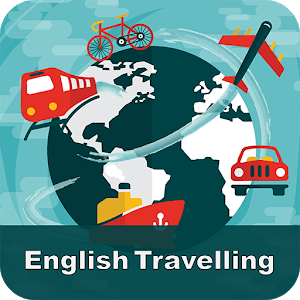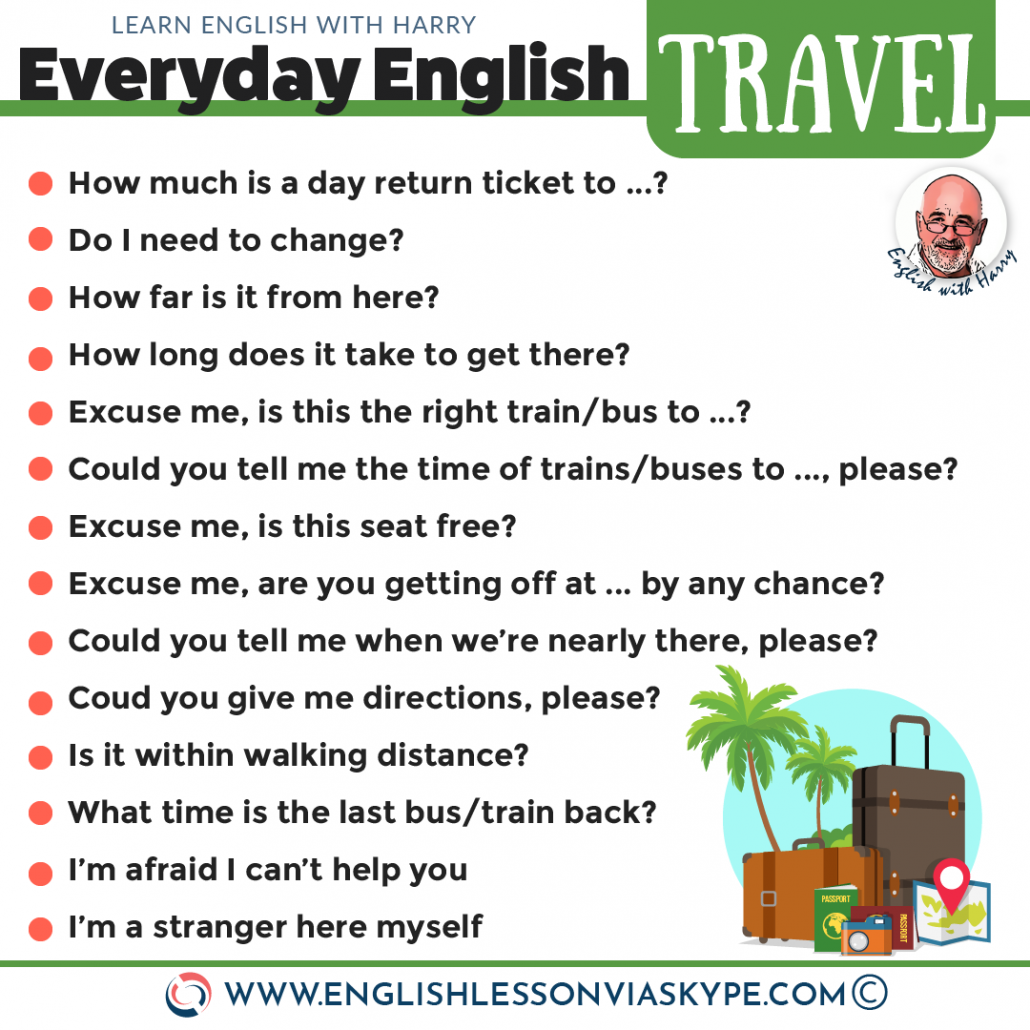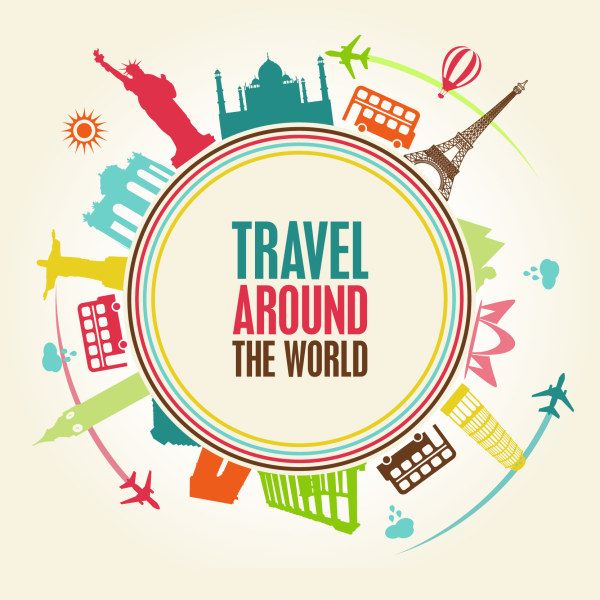Learn English for Travel: Your Ultimate Guide to Mastering Travel Phrases
Introduction: Why Learning English for Travel Matters
Traveling to new places is an exciting adventure, but one of the biggest challenges many travelers face is the language barrier. Whether you’re visiting a bustling city, exploring remote villages, or just heading to a beach resort, learning English for travel can make your journey much more enjoyable and stress-free.
English is the most widely spoken second language in the world, making it the go-to language in international travel. Mastering key travel English phrases will help you navigate airports, hotels, restaurants, and even emergencies with ease.
In this guide, we’ll cover essential English phrases for travel, tips for improving your speaking skills, and how to effectively communicate during your travels.

1. Basic Travel English Phrases
1.1 Essential Phrases for Airport Travel
Airports can be hectic, and the language barrier can add extra stress to your travels. Knowing the right phrases will help you navigate check-in counters, security checks, and boarding gates with confidence. Here are a few useful phrases:
-
“Where is the check-in counter for [airline]?”
-
“What gate is my flight departing from?”
-
“Can you help me with my luggage?”
-
“How do I get to the departure lounge?”
These phrases will help you communicate with airport staff and fellow travelers, ensuring a smooth journey.
1.2 Hotel Phrases
Upon arrival at your destination, you’ll need to interact with hotel staff. Here are some key phrases that will help you check in, ask for assistance, or request amenities:
-
“I have a reservation under the name [your name].”
-
“Can I have a wake-up call at 7 AM?”
-
“Is breakfast included in my stay?”
-
“Could I have a late checkout?”
Knowing these phrases will ensure you get the best service during your stay and avoid misunderstandings.
1.3 Dining Out in English
Whether you’re at a fine dining restaurant or a casual café, knowing how to communicate your food preferences and order meals is essential. Some useful dining phrases include:
-
“Could I have the menu, please?”
-
“What’s the specialty of the day?”
-
“I would like to order [dish].”
-
“Can I get this to go?”
These phrases will help you enjoy your meals and navigate menus with ease.

1.4 Asking for Directions
Getting lost in a new place is common, but asking for directions in English can help you find your way. Here are some helpful phrases:
-
“Excuse me, can you tell me how to get to [place]?”
-
“Is it far from here?”
-
“Can I walk there or do I need a taxi?”
-
“How much does a taxi to [place] cost?”
Having these phrases handy will make it easier for you to explore unfamiliar places and enjoy your trip.
2. How to Improve Your English for Travel
2.1 Practice Speaking Regularly
The more you practice speaking, the more confident you’ll become. Try to engage in conversations with native English speakers or fellow travelers. Even practicing in front of a mirror can help improve your pronunciation and fluency. You can also consider using language exchange apps or participating in online conversation groups to get real-time practice.
2.2 Use Language Learning Apps
There are many great apps available that can help you improve your travel English. Apps like Duolingo, Babbel, and HelloTalk offer lessons and activities tailored to travelers. They focus on useful vocabulary, essential phrases, and grammar, making it easier to build your language skills.
2.3 Listen to English Podcasts or Watch Videos
Listening to English podcasts or watching videos about travel can enhance your listening skills and familiarize you with different accents. Look for podcasts or YouTube channels that focus on practical travel conversations. This exposure will help you pick up the pace of conversation and learn new vocabulary.
2.4 Label Items Around You in English
A fun and effective way to learn travel English is by labeling items in your home with their English names. Whether it’s the kitchen, bedroom, or bathroom, labeling common objects will help you remember everyday vocabulary that you’ll use while traveling.

3. Tips for Navigating Common Travel Scenarios in English
3.1 Handling Emergencies
In case of emergencies, knowing how to communicate in English can be life-saving. Practice these phrases to feel more prepared:
-
“I need help!”
-
“Where is the nearest hospital?”
-
“Can you call the police?”
-
“I’ve lost my passport.”
While we hope you never need to use these phrases, it’s always good to be prepared in case of an emergency.
3.2 Shopping and Bargaining
In many countries, bargaining is common in markets and shops. To help you communicate effectively, here are some phrases you can use:
-
“How much does this cost?”
-
“Is this the best price?”
-
“Can you give me a discount?”
-
“I’ll pay [amount].”
These phrases will help you negotiate and ensure you’re getting the best deal.
3.3 Using Public Transportation
Whether you’re taking a bus, metro, or train, getting around in a foreign country can be confusing. These phrases will help you understand schedules, routes, and fares:
-
“Which platform is the train to [destination]?”
-
“How much is a ticket to [destination]?”
-
“Does this bus go to [location]?”
-
“What time does the last bus leave?”
Being able to ask these questions will make navigating public transportation a breeze.
4. Common Mistakes to Avoid When Learning Travel English
4.1 Relying Too Much on Translation Apps
While translation apps can be helpful in a pinch, they shouldn’t be relied upon for every situation. Overusing them can lead to incorrect translations, and they don’t always capture the nuances of the conversation. It’s important to practice and improve your speaking skills so you can communicate without relying on apps.
4.2 Speaking Too Fast
When you’re excited about traveling, it’s easy to speak too quickly, especially when using a foreign language. However, speaking too fast can make it hard for others to understand you. Try to speak slowly and clearly, especially in situations where you need to be understood, like at airports or when asking for directions.
4.3 Focusing Too Much on Grammar
While grammar is important, it shouldn’t be your primary focus in everyday conversations while traveling. People will appreciate your effort to speak English, even if your grammar isn’t perfect. Focus on getting your message across rather than stressing over grammatical accuracy.
5. Frequently Asked Questions (FAQs)
Q1: What are the most important phrases to learn for travel?
A1: The most important phrases include greetings, asking for directions, ordering food, booking a room, and handling emergencies. These are the basic phrases that will help you navigate various travel situations with ease.
Q2: How can I improve my travel English quickly?
A2: Practice speaking every day, use language learning apps, listen to podcasts or watch videos, and immerse yourself in English-speaking environments. The more exposure you have, the faster you’ll improve.
Q3: Do I need to know English to travel?
A3: While English may not be necessary for all countries, it is the most commonly spoken second language worldwide. Learning English for travel can make your journey smoother and allow you to communicate in many places.
Q4: How can I improve my pronunciation for travel?
A4: To improve pronunciation, practice speaking regularly, listen to native speakers, and mimic their speech. Watching travel videos in English can also help you pick up correct pronunciation.
Q5: Can I travel with basic English skills?
A5: Yes, you can travel with basic English skills. However, learning some essential phrases will make your travel experience more enjoyable and help you communicate better in a variety of situations.
Conclusion: Start Your Travel Adventure with English
Learning English for travel is a valuable investment that will enhance your overall experience and ensure smoother interactions during your trip. With practice, you’ll be able to confidently navigate airports, hotels, restaurants, and more, all while improving your language skills. So, grab your travel guide, start learning those essential phrases, and get ready to explore the world with ease!








